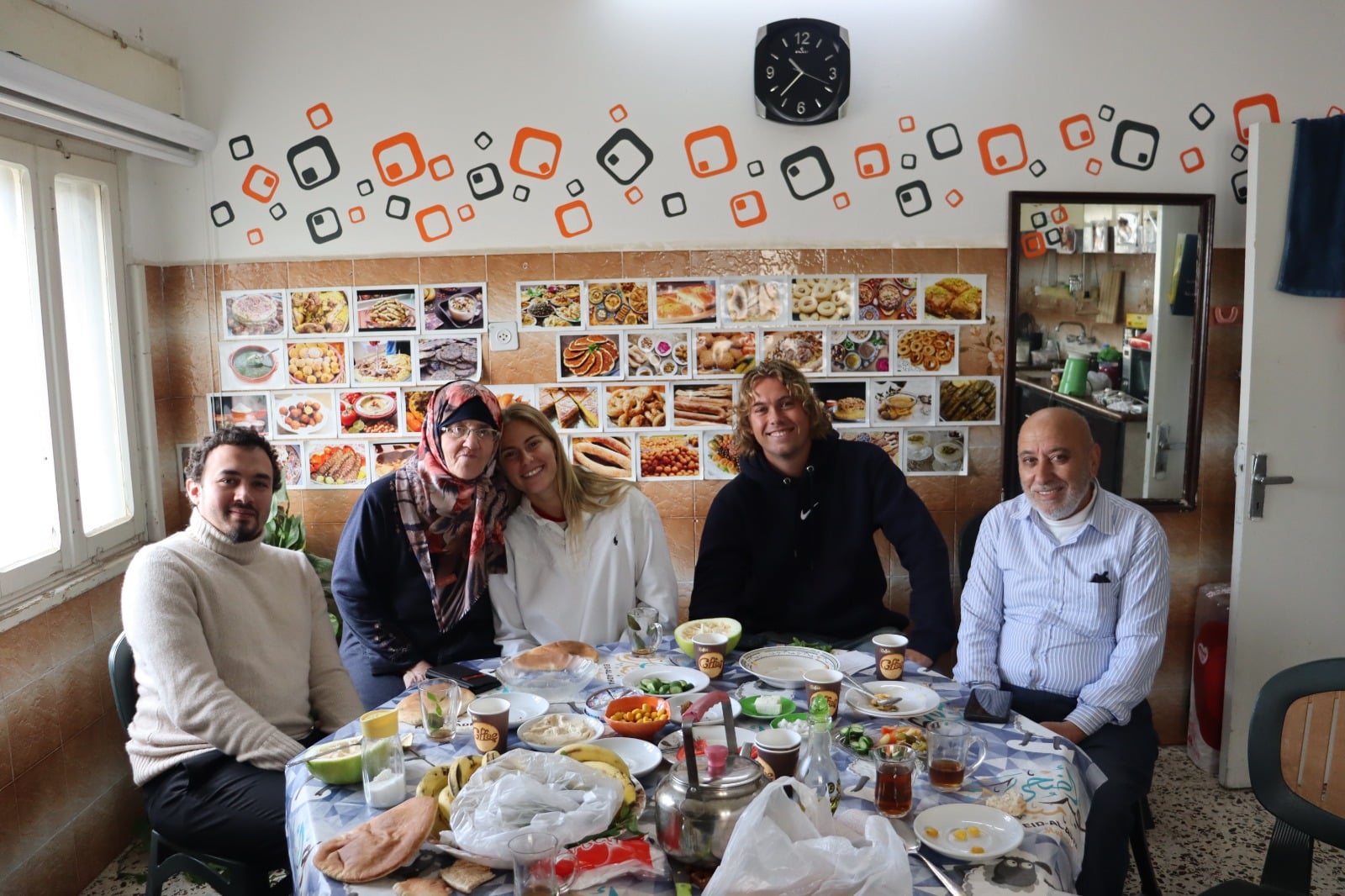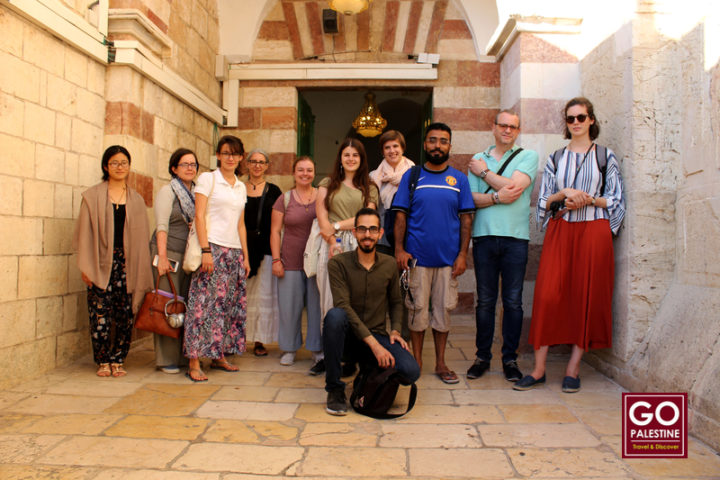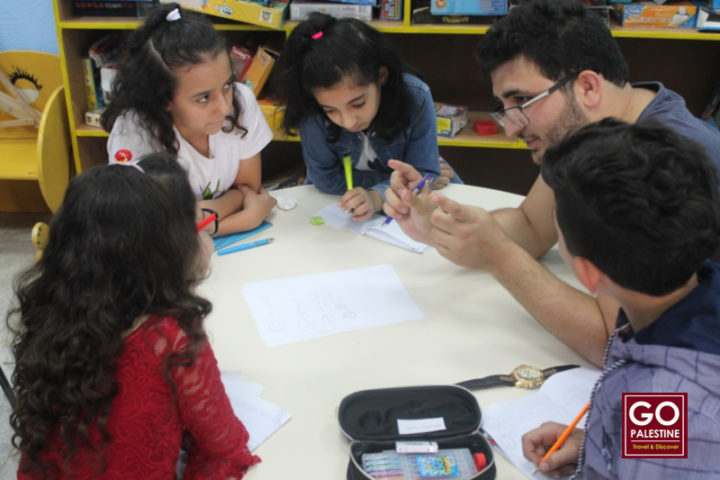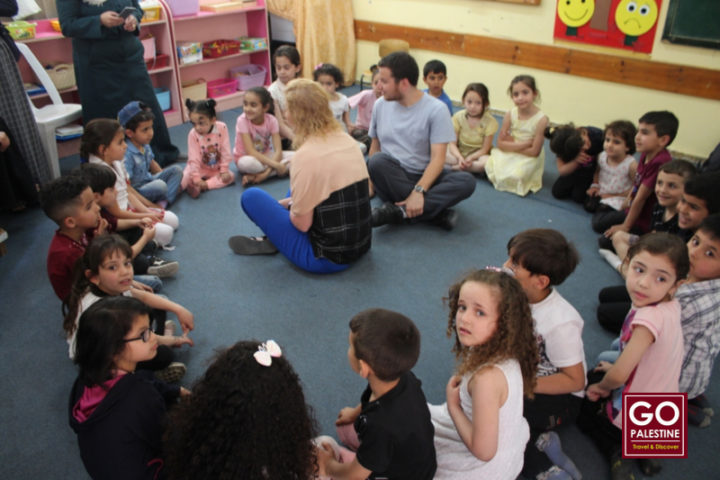
While applying for an internship or volunteer position at the Palestinian Center, people are curious about the daily routine of volunteers in hopes of getting a better sense of the specifics of their program. While English Teachers, Special Program Volunteers, and Intensive Arabic students will have variances in their schedules, they all follow the same general guidelines and will often be working side-by-side with one another. Regardless of the program for which you intend to apply, you can expect engaging and exciting days at the Center with plenty of free time for leisure and community involvement.
Accommodations
Volunteers and interns start their days at one of two accommodation options. Women who come to work at the Palestinian Center will be paired with a host family, who will usually be close friends with members of the staff and part of the EC community. The homestays will be located in close proximity to the Center and will either be a short walk or quick taxi ride away. Men can request to stay with a host family, but typically—due to culturally sensitive reasons—will be placed with the other male volunteers in the apartment-style accommodation utilized by the Palestinian Center.
Interns staying at this location enjoy the relationships with their neighbors, who completely take them in as part of their families, making sure that they are taken care of and feel at home. Each of these options provide different benefits, but both ensure that the volunteers are immersed in the Hebron community in a residence that is in close proximity to the Center.
Daily Life at the Palestinian Center
Upon arrival at the Center after a 15 minute walk or short taxi ride, you will be served breakfast with the rest of the volunteers from 9:30 to 10:00am. Breakfast usually consists of eggs, vegetables, hummus, falafel, yogurt, cheese, coffee, and tea, and is always a great way to start the day with the rest of the volunteers and the Palestinian Center staff. After eating, the volunteers begin the various duties of their programs. Intensive Arabic students will resume their classes, English teachers will prepare their lessons or lead their classes, and special program interns will dive into their subjects.



Intensive Arabic
The main purpose of the Intensive Arabic program is to get a strong grasp of the colloquial Arabic spoken in Palestine and the greater Levant region. Students enrolled in these classes can expect to take four hours of Arabic classes for five days of the week, usually starting in the morning around 9:00 and and extending into the early afternoon. Lessons are intersected with periodic breaks, where students will often relax and grab a bite to eat and make coffee or tea. Students in the Intensive Arabic program will usually be given 2-3 hours of homework to complete each night, focusing on practically applying the vocabulary and grammar learned throughout the day.
The diverse lessons and activities provided by their instructors allow for the students to improve in all facets of language learning: speaking, reading, writing, and listening. The efforts of students in these lessons are even further solidified when they put their newly acquired knowledge into practice with the members of the Hebron community outside of the Center.
Teach English Speak Arabic
Volunteers enrolled in this program have the dual responsibility of preparing and executing English classes, as well as engaging in their own personal Arabic lessons with members of the EC staff. The priority of the Teach English interns, however, is to teach the students who come to the Center to learn English. These interns will be assigned various English classes to prepare and lead, either as the primary instructor of the course or as a Teaching Assistant. Internationals will only be tasked as the primary instructor to students with predetermined high levels of English, and will serve as Teaching Assistants alongside a native Arabic speaker to help expose the students to different English accents. Classes are held in Hebron at the Center, as well as various villages within a 15 minute taxi ride from the city center. The eager students are usually the highlights of the volunteers’ days, coming to class everyday eager to learn more about the English language and different cultures. Beyond leading classes, Teach English volunteers help administer language placement tests and write occasional articles about life in Palestine for the Center’s website.
Leisure Time
Many people also wonder about volunteer life outside the working hours of the Center. EC activities usually end around 4:00 or 5:00pm each night, and volunteers spend the rest of the evening off—usually doing something together or with their host families or neighbors.
Due to the highly manageable workload for volunteers, the majority of the time outside of the EC is spent for leisure and cultural engagement. Activities are often arranged by the center—like tours of the Old Town, Keffiyeh factory, and Shuhada Street—but there is also a lot of free time for volunteers to arrange their own activities. Internationals enjoy partaking in soccer games with local children or renting a local soccer pitch for an hour, going to the local gym to release any stress, eating copious amounts of falafel and shawarma, or heading to the cafe with a neighbor to drink Arabic coffee and smoke shisha (hookah). This serves as a window into the true and genuine culture of Hebron, giving volunteers priceless experiences with people in the community.
Furthermore, on weekends, volunteers have the opportunity to travel to other cities or villages in the West Bank, or simply stay local and explore Hebron. Wherever volunteers end up going during their free time, they make new friends eager to connect and converse with people from different cultures. Whether you are working in the Palestinian Center or enjoying your leisure time in the community, you will be immersed in the Palestinian experience—constantly reminded of the warm and welcoming nature of Palestine’s people.
